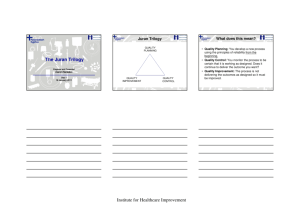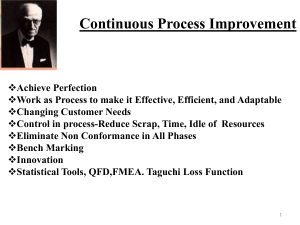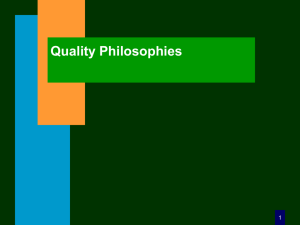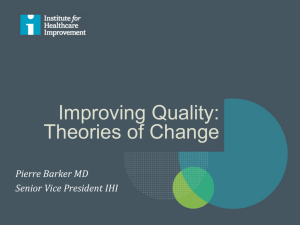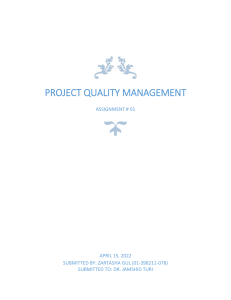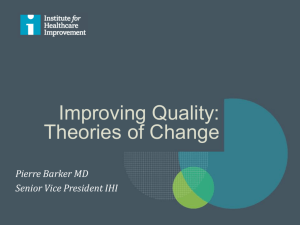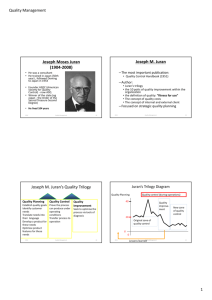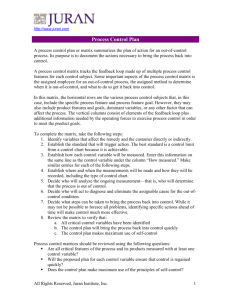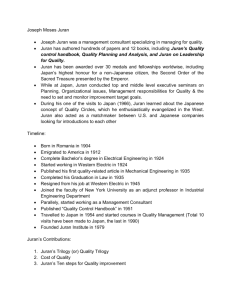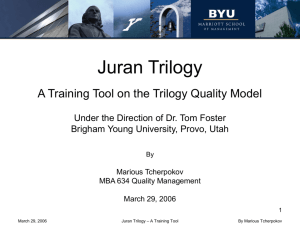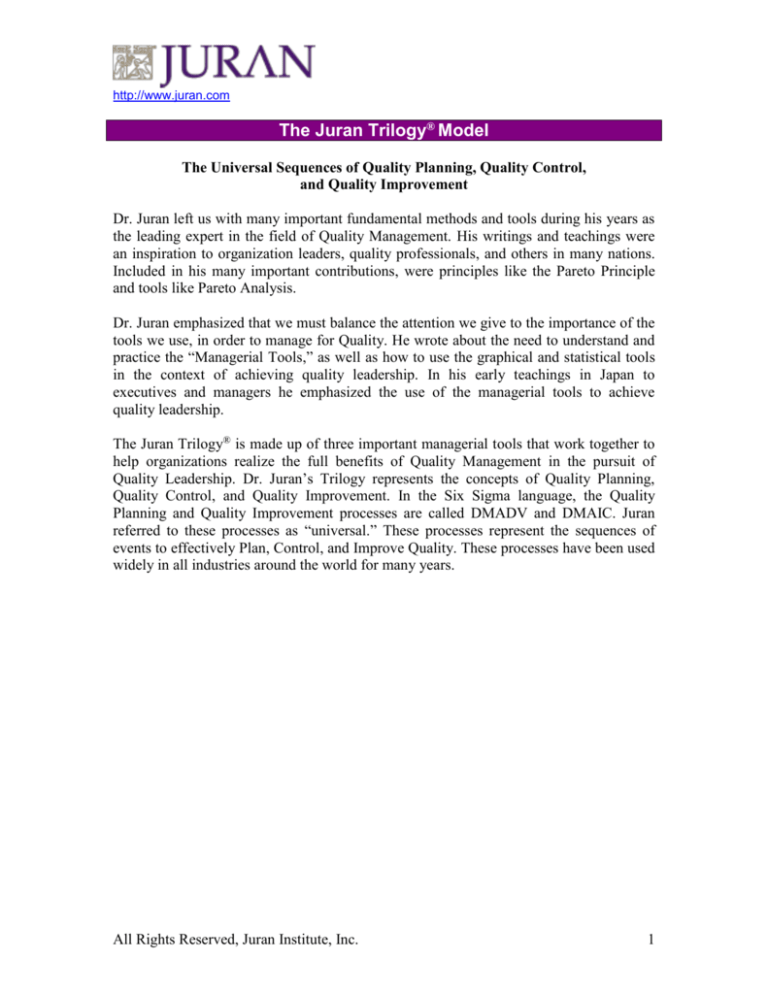
http://www.juran.com
The Juran Trilogy® Model
The Universal Sequences of Quality Planning, Quality Control,
and Quality Improvement
Dr. Juran left us with many important fundamental methods and tools during his years as
the leading expert in the field of Quality Management. His writings and teachings were
an inspiration to organization leaders, quality professionals, and others in many nations.
Included in his many important contributions, were principles like the Pareto Principle
and tools like Pareto Analysis.
Dr. Juran emphasized that we must balance the attention we give to the importance of the
tools we use, in order to manage for Quality. He wrote about the need to understand and
practice the “Managerial Tools,” as well as how to use the graphical and statistical tools
in the context of achieving quality leadership. In his early teachings in Japan to
executives and managers he emphasized the use of the managerial tools to achieve
quality leadership.
The Juran Trilogy® is made up of three important managerial tools that work together to
help organizations realize the full benefits of Quality Management in the pursuit of
Quality Leadership. Dr. Juran’s Trilogy represents the concepts of Quality Planning,
Quality Control, and Quality Improvement. In the Six Sigma language, the Quality
Planning and Quality Improvement processes are called DMADV and DMAIC. Juran
referred to these processes as “universal.” These processes represent the sequences of
events to effectively Plan, Control, and Improve Quality. These processes have been used
widely in all industries around the world for many years.
All Rights Reserved, Juran Institute, Inc.
1
http://www.juran.com
The Juran Trilogy®
Quality Control (During Operations)
Sporadic Spike
(RCA/SCA)
40
Original Zone of
Quality Control
20
Quality
Improvement
Quality Planning
Operations
Begin
R6
New Zone of
Quality Control
Cost of Poor Quality
Chronic Waste
0
Time
0
Lessons Learned
The use of the Trilogy processes within an organization typically begins with Quality
Improvement. This is because the economic costs of poor quality have a significant
negative financial impact on an organization when expressed in bottom-line terms.
Quality Improvement requires that we identify “projects” for process improvement. We
define the process problem, follow the diagnostic journey to discover root causes,
complete the remedial journey to apply remedies, and use the Quality Control process to
hold the gains. The Quality Control process is the last step and identifies key process
control measures that relate to meeting customer and process requirements. The Control
Plan defines how these measures are monitored and managed.
In the Trilogy, the journey towards quality leadership is not over until the trilogy of
process is completely integrated within the organization. This is where many
organizations fail in their pursuit of quality leadership. This requires the organization to
learn and use the Quality Planning process. Quality Planning is applied to product and
service design and development, as well as process design. The process starts with a
design project, to design something new. It then flows from identifying customers and
their needs, defining the product/service design features, creating the process designs, and
the process control plans. Poor quality planning is the source of costs of poor quality. If
the sources of poor planning are not addressed, the organization will continue to produce
quality problems in the future and the goal of quality leadership cannot be recognized.
So whether your organization is at the beginning of its quality journey or has only
partially integrated the Juran Trilogy® of quality processes, learn about the importance of
All Rights Reserved, Juran Institute, Inc.
2
http://www.juran.com
how these three processes work together so that the benefits of quality leadership can be
realized.
All Rights Reserved, Juran Institute, Inc.
3

